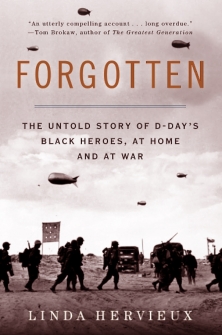Civil Rights leader Walter White (1893 - 1955) recognized an historic moment when he saw one: during the summer of 1944 he wrote about the first African-American general - Benjamin O. Davis (1912 - 2002; West Point '36):
"He had endured snubs because of his color and seen less able men promoted over his head without complaint. Some soldiers of his own race charge that he is not as militant as they think he should be in redressing their grievances. Non of this disturbs him." "It is a singular fact that [the] supposedly civilized Americans in these times deny the Negroes the opportunity to engage in respectable jobs, the right of access to the restaurants, theaters, or the same train accommodations as themselves and periodically will run amuck to lynch Negroes individually or to slaughter them wholesale - old men, women, and children alike in race wars like the present one."
What Radio Tokyo was referring to were the multiple race riots that broke out in Detroit and seven other municipalities during the Summer of 1943. "Should I sacrifice my life to live half American?’ Will things be better for the next generation [of colored Americans] in the peace to follow? ‘Would it be demanding too much to demand full citizenship rights in ex-change for the sacrificing of my life?" Wishing to avoid some of the taint of racism that characterized the American military during the First World war, Republican Senator William Barbour (1888 - 1943) announced that he intended to introduce an amendment to the 1940 conscription legislation that would open all branches of the U.S. Military to everyone regardless of skin color. The article goes on to list all the various branches that practiced racial discrimination. - from Amazon:
 During the winter of 1942, Private Harry Carpenter, U.S Army, made a big honking mistake when he decided to declare that the current war was "a white man's war". Arrested by the MPs and carted-off to stand before Magistrate Thomas O'Hara, Carpenter found that he had reaped the whirlwind: he was charged with treason against the United States. "Much has been written and much more whispered about relations between American Negro soldiers and white girls in Britain and elsewhere. To get at the facts, Newsweek assigned William Wilson of its London bureau to a candid review of the subject. His findings , largely from the standpoint of the Negro soldiers themselves [are as follow]." |